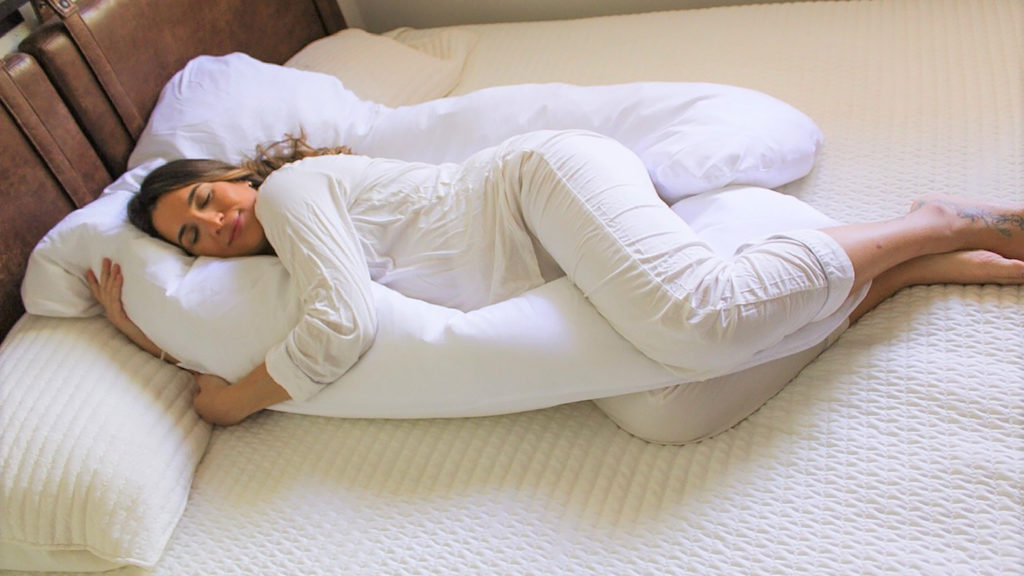Beat the Sniffles with Natural Allergy Relief
Looking for a little allergy relief but also hoping to keep things a little more natural during your pregnancy—good news! There are some wonderful natural remedies for allergies out there to try. Whether the pollen count has got you sniffling or cat dander has left your eyes bloodshot and watery, consider giving some of these natural allergy relief options a try. Important pro-tip: consult your doctor before trying any home remedies for allergies—s/he will be best able to advise what is safest for you and baby.

Raw Honey
According to Josh Axe, “the International Archives of Allergy and Immunology published an article in 2011 that tested how pre-seasonal use of birch pollen honey affected people with birch pollen allergies and discovered that patients taking the honey ‘reported a 60% lower total symptom score, twice as many asymptomatic days, and 70% fewer days with severe symptoms, and they used 50% less antihistamines compared to the control group’ that took conventional meds.” He recommends taking one tablespoon per day for allergy relief.
Apple Cider Vinegar
Apple Cider Vinegar (referred to as ACV enthusiasts), is a popular natural remedy for a slew of ailments including frequent sneezing, nasal congestion, itchy eyes, and more. Those that swear by ACV emphasize that you should use a certified organic brand and usually recommend taking 1-2 tablespoons per day for optimal health benefits, but nausea-sufferers beware (we’re looking at you First Trimester): it can taste a little bit foul if you drink it straight. We recommend making your daily dose a little tastier with a juice recipe!
The Neti Pot
One of the most popular natural allergy remedies, the Neti Pot flushes out allergens and other irritations by going in one nostril and out the other. Use a sterile saline solution and flush our your nose twice per day to clear out pollen, mold, dander and other allergy instigators.
Sublingual Immunotherapy
Try to overlook the fact this sounds more like an alien abduction technique than an allergy remedy. “Sublingual immunotherapy also alters the immune system to reduce allergic responses. Concentrated doses of allergens like grass, pollen, or ragweed (the only ones approved for use in the U.S. right now for this particular therapy) are placed under the patient’s tongue three times a week for 3 to 5 years. During this time, the body absorbs the allergen, developing a lasting immunity that leaves you with no reaction to the allergen. In fact, a study published in the journal Medicina Universitaria found that, after just 24 weeks of treatment, patients receiving sublingual immunotherapy reported a 94% decrease in drug use for allergy symptom relief.” See? That wasn’t so bad.
Change Your Diet
This may seem like a gimme, but your allergies can change as we age and during pregnancy. If you notice unusual reactions after eating, try to keep a journal of your meals and remove foods that seem to be causing allergic reactions.
Acupuncture
Researchers aren’t 100% sure why acupuncture seems to offer allergy relief for some people, but they suspect that it may somehow help regulate immune responses. Prevention.com notes that in a study published in the European Journal of Allergy and Clinical Immunology, “patients who underwent a particular type of needling known as active acupuncture (meaning the needles were placed in a way that induced a feeling of numbness or tingling) three times a week for four weeks showed a significant reduction in allergy symptoms like nasal congestion and sneezing. People who either had sham acupuncture (improper placement of needles) or no treatment at all got no such relief.” In other words, if you want to give acupuncture a try, make sure you’re going to a reputable practitioner.
Cool Mist Humidifier
You might be tempted to pack away your humidifier as the weather warms up, but in an interview with Women’s Day, Dr. John Salerno recommended that anyone suffering from seasonal or indoor allergies keep on humidifying . “When it’s still a little cool at night and indoor humidity is low, using a cool-mist humidifier can help get allergens out of the air,” he explains. “Water droplets bind to the allergens, and they get heavy and fall to the floor so you don’t inhale them.”
Cheers to beating allergies during pregnancy, one natural remedy at a time!
Related articles: Best Podcasts for Moms, What to Pack in a Pregnancy Hospital Bag for Baby

